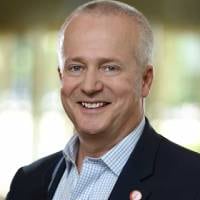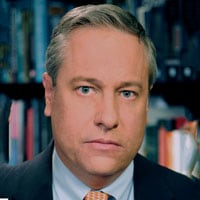This transcript has been edited for clarity.
Robert A. Harrington, MD: This is Bob Harrington from Stanford University, back for part 2 of the 2022 year in cardiology review. I'm here with my good friend and colleague, Dr Mike Gibson, from Boston. Mike is an interventional cardiologist at Beth Israel Deaconess. He's a professor of medicine at Harvard, and he's the CEO of the not-for-profit Baim Institute, an academic research institute.
Mike, in the first part, we were talking about doing clinical trials in China and being able to answer questions more rapidly. In this session, I'd like to run through a whole bunch of individual trials, agents, big questions, with the underlying theme of "Can we do things better?"
One of my favorite trials of the year tested a thing that I learned about by listening to people like Jim Januzzi and Gregg Fonarow, which is this notion of rapid escalation of guideline-directed medical therapy for heart failure. We were all taught to start your beta-blocker, add your MRA, add your ARB or ACE inhibitor, etc., which takes months and months. Now, there's a randomized trial that says people do better if you start it all at once.
STRONG-HF
C. Michael Gibson, MD: Yes, it's the STRONG-HF trial, which was done largely in Russia and Africa. I'm an interventional cardiologist. I think I'm an aggressive person, but then I get hesitant when all these heart failure doctors say, "No, start them all at once." It kind of scares me. That's what they're advocating. Get all those pillars started at once. They started three of those pillars — beta-blockers, MRAs, and angiotensin inhibitors — at once and they did better, but it required weekly visits to uptitrate over that next month.
That gets back to execution and infrastructure. It's a great idea, but can you do it?
Harrington: Do you have the team structure to do it? If we rely on the doctors to do it, I don't think it's going to get done. You have to have a structure that allows the doctor, if you will, to lead a team of diverse individuals with different types of backgrounds to make those calls every week to say, "Hey, how's your blood pressure? How are you feeling? Let's go up on the dose."
Gibson: Bob, there's also a biology lesson here. The human body is pretty amazing, and it has all these redundant pathways. If you block this, you increase this. Heart failure is a great example of that. You do better if you block multiple pathways with a low dose or starting dose than if you pick two pathways and go very high in the dosing. That's something we're going to see, I think, also over on the statin side of things.
Lipid Lowering and Lp(a)
Harrington: Let's talk about the statins. The thing that really got my attention this year is that now the lipid experts are saying it's not going to be one-drug therapy. You want to get people down to an LDL-C that's acceptable for their risk profile. You're going to need multiple-drug therapy, and guess what? Let's start them quickly so that you're not slowly titrating people up.
I was at a meeting this past weekend. I don't know if you coined the phrase "time is muscle" or if you came out of the research group where "time is muscle" was phrased, but now they're saying "time is plaque." What do you think about that?
Gibson: Clearly, lower is going to be better and longer is going to be better. In my own family, my two sons both went to their primary care docs and said, "I want to get on a statin in my thirties." They argued, gave them all the data, and they're both on statins now. I want to have my LDL-C down to somewhere around that of a hunter-gatherer, and the problem is, as you say, it takes many different shots on goal.
Statins lower your LDL-C, but they increase your cholesterol absorption. That's why we have ezetimibe. It blocks that escape pathway. There are similar things with LDL receptors and the PCSK9 inhibitors. All these things come together, kind of like the Tom Cruise line "You complete me."
Bob, I learned a hard lesson. I think we were going to talk about incidental findings and calcium scoring. I ended up having a calcium score of 1100. It was a real wakeup call because then, with an LDL-C of 70 and an HDL-C about the same, how in the world did this happen?
We looked and my Lp(a) was 2.75 times higher than normal. I was a skeptic about calcium scores, but I would not have known that had I not had that test done. Now I'm searching for ways to get my Lp(a) down. I think now that we fought the LDL battle, the next battle is going to be on some of these other markers, like Lp(a).
Harrington: There's a large amount of data about Lp(a) in some ways being the silent risk factor because people aren't measuring it routinely. We don't have a great way to treat it right now, but there are trials going on that are looking at lowering Lp(a). They're designed to see, first, can you do it biologically, safely, and effectively? Second, is that associated with improved clinical outcomes above and beyond statins? I absolutely agree with you.
The other thing that got my attention this past year is that we all are using the pooled risk equations, right? We have it built into our electronic health records. Your sons are a great example. Do they have to wait until they're 60 and their score goes up? Well, that's just been 30 more years of plaque deposition. Why not think about the accumulated lifetime risk? That's what people, I think, are starting to talk about.
Gibson: It's more than just cholesterol-years, where you multiply your LDL-C by your years. My LDL is really bad. My LDL is different from your LDL because I have an Lp(a). What I'm doing now for my kids is they're all going to get tested to see if they have the genetic variant as well.
About 20% of people are walking around with it. They don't know it. And they have a risk factor that's not modifiable by diet. We keep telling people to change their diet. Well, Lp(a) is not modifiable by that and it's not modifiable by statins or exercise. I think we're going to learn more about some of these other determinants. I do think getting this treated earlier is better.
DCP and TRANSFORM-HF Studies
Harrington: Mike, there were a couple of trials that got my attention, including furosemide vs torsemide in TRANSFORM-HF and then the diuretic comparison project on hydrochlorothiazide vs chlorthalidone. I think there are some good lessons there. Here are drugs we've used for decades and certain assumptions have been made. To your point, you don't really know unless you test them.
For example, people thought, well, maybe torsemide is a better diuretic when you're acutely congested with heart failure, and maybe hydrochlorothiazide is as good as chlorthalidone, even though the trials largely used chlorthalidone. Now we actually have clinical trial data.
Gibson: So much for experts. It really is important because this was recommended in the guidelines. Chlorthalidone was recommended over hydrochlorothiazide in the guidelines. When we put it to the test, another great hypothesis fell. That's why we do trials. These two studies are exactly why we do trials, and we're better for having done them.
Harrington: I agree with you. I love the hydrochlorothiazide vs chlorthalidone trial because of the way that it was done within the VA system in a pragmatic design. Kudos to our colleagues at the VA for being able to pull that off, and kudos to our colleagues in the Heart Failure Network for pulling off the furosemide trial.
Again, to your earlier point, Mike, networks, organization, and execution. A health system, the VA, and a heart failure research group answered the questions.
Gibson: The randomized trial may be one of the most important therapies we have.
Statin vs Supplements and Antiplatelets
Harrington: It clearly remains one of the most important advances in medical science.
The other thing that people love are supplements, Mike. I don't want to take a statin because I'm worried about those muscle things, but I'll take my various supplements. We had a trial that tested statins against a bunch of supplements. Guess which one won?
Gibson: Well, people are spending $270 billion a year on the nutraceutical industry just because they think it's organic and it's going to be better. When you compare a statin like rosuvastatin at a low dose vs things like fish oil, cinnamon, garlic, turmeric, plant sterols, and red yeast rice — six different kinds of natural therapies — it was no surprise. LDL lowering with the rosuvastatin was 30% better and this drug is costing $5 a month. I would hazard a guess that it may be just as inexpensive, and may be less expensive, than all those supplements. I hope we can get the message out about the nutraceutical industry.
Harrington: It needs to be exposed to the same rigor as many of the other things that people are taking for their health. You said one supplement after another fell by the wayside. As you know, I'm a big baseball fan. It reminded me that the 1999 All-Star Game in Fenway Park, where the great Pedro Martinez stood up and just mowed down — boom, one, boom, two, three, four — he struck out the four best hitters in the National League consecutively. Maybe Pedro and rosuvastatin have something in common.
- 0
Credits:
Lead image: Medscape Illustration/Dreamstime
© 2022 WebMD, LLC
Any views expressed above are the author's own and do not necessarily reflect the views of WebMD or Medscape.
Cite this: Top Cardiology Trials of 2022 - Medscape - Dec 22, 2022.












